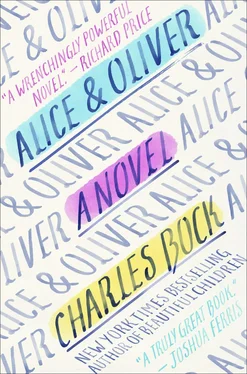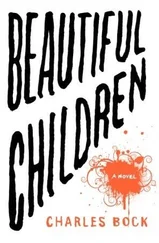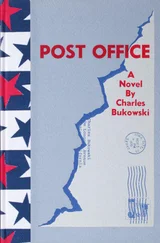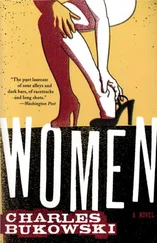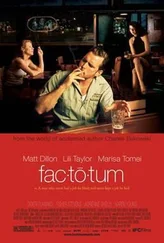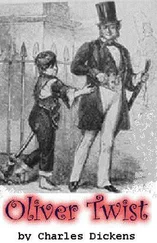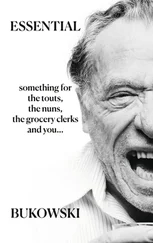Once he let stragglers know that if the ads didn’t net them anything, he’d be available to show them places, Oliver hightailed it back to a dusty office in an old Gramercy hotel, where he spent the evening answering calls. Next morning he was up at seven. On the half hour, lasting long into the evening, he met groups of six to eight strangers at designated corners of the Lower East Side, amid all those knish shops and quinceañera dressmakers and noodle places with dead plucked chickens hanging in windows. Listings generally were considered dogshit, where pretty much any agency could get keys, and commissions were up for grabs. Oliver always met his groups on the southeast corner — southeast was his. Other groups of prospective tenants would congregate around their entry-level real estate agents on the other three corners, all these clusters of nervous white people at once conspicuous and funny, a shaking little harbinger. Invariably, a grumbling super then led the parado de blancos up stairways thin and creaking and smelling of weird steamed vegetables, guiding them down dark hallways echoing with the cries of infants and the barks of ignored dogs. Always they ended up in front of some metal door festooned with half-ripped stickers — the Puerto Rican flag, some princesses, a purple dinosaur.
When the mom of a trench-coat-wearing graduate student complained that her family had spent fifty years working to get out of these low-ceilinged one-bedroom shoe box shtetls, Oliver would answer that she was totally right, this space was unacceptable. He’d also mention a bigger place his listing sheet said was nearby, a bit above their price range, but if she was interested, they could take a look. When the temp with ambitions of documentary filmmaking recoiled at splattered walls and a decapitated body outlined in chalk along the kitchen floor, Oliver agreed. Totally unacceptable . No reasonable person could be expected to make their breakfast at a murder site. Except, you know, the floor’s scheduled to be cleaned. And the walls will get a new coat of paint.
His favorite had been a sous chef. Worn down from a nasty divorce, the inhumane hours she spent working at a trendy Village bistro, and months searching for an affordable place, she’d lost any ability to censor herself, and had screamed: “You’re not seriously trying to tell me this ABANDONED ELEVATOR SHAFT is a STUDIO? There’s NO FLOOR. How can you EXPECT me to LIVE with NO FLOOR?” Oliver had handed her a tissue and confessed he hadn’t seen the place before. Obviously they should get out of there.
It was a kick to remember. The perfect part-time job for a grad student: juggling classes around the suck-hole of Tuesday afternoon through Thursday at noon; scheduling all his showings and contract signings during that busy stretch; then spending Friday evening through Sunday schlepping back and forth between computer labs and the Lower East Side. The job may have required attention and hustle, but not much mental energy, which helped on the school front, and he became an early adapter to laptops, switching his focus to swatches of programs while parked in a coffee shop, jumping in and out of assignments, working line by line through programming math and logic. Regular injections of commission money let him take Alice out for fancy meals, actually enjoy life. Friends wondered about the morality of the job, but Oliver was sanguine. Paying off doormen for tips on vacancies wasn’t so bad, because everyone knew the deal and was kind of wink-wink about it. Cold-calling management companies for leads, sucking up to supers who already had their hands out, maybe that left him needing a shower, but again, this was the way of the world. And the verbal gymnastics that convinced a potential renter to give down-payment money weren’t all that different from the raps a single guy in a club might use to ease women out of their underthings. You were just convincing them to do something they already wanted to do.
—
Oliver handed the newsstand guy a pair of quarters, grabbed a pack of fruit Chiclets. He felt sweat bubbling beneath his winter peacoat.
A friend of his cousin, this blond, classically northeastern, establishment-looking guy (with patches on the elbows of his jacket and the whole nine), had clued him in, handing him the yellow business card and explaining how things worked — clean breath wasn’t just polite, it helped stop germs. It had been comforting that someone so prep school had been forthcoming about all this, a nice shot in the arm.
Oliver headed out from beneath the green awning. Side groups of angry young men had started to bulk in anticipation, waiting for the moment the newspaper vendor’s X-Acto knife cut open that virginal bundle, so they could bum-rush the line and grab. In the intermittent distance, towheaded skate rats attempted tricks around the giant cube. A few stragglers headed from the subway toward the set-up beach umbrella across the street, where a guy sold old porn videotapes at a folding table.
At the nearest bank of pay phones, naturally, two people were lined up at each queue, waiting.
—
The realtor had wanted to hire him full-time, even pay for him to get his license, move into commercial properties. But the woman who’d stared at him with those big eyes in that shitty Williamsburg loft party, she’d asked. What did he really want?
Sugar clung, thick on his teeth.
Crossing Fourth brought him toward the delineation point of St. Marks Place, that famous stretch of sagging brownstones and their ground-level kitsch. Oliver ignored the video place where they had all the obscure subtitled shit; and the round-the-clock restaurant offering a perpetual special of fetid rice and a limp, tofu pita burger. Some crazed street artist had plastered, around a streetlamp, pieces of ceramic and mosaic tile segments and shards of mirrored glass, the effect funky and gaudy, signaling a thrum of creative energy — running beneath them, everywhere. Oliver tried not to think about the program that he wasn’t working on. His head stayed down, huddled into his coat; he felt his neck going slick now, wished he had a mirror to check himself, didn’t want to look like shit.
The famed fifties jazz spot whose bartenders routinely chased off an unknown, drunken Jack Kerouac had been turned into a Gap. The egg-cream counter and magazine stand still stood, though, and three fresh-faced foreign-exchange students were outside, replicating the cover photo of the first New York Dolls album.
Just for shits and giggles, he and Alice used to head into one of the music stores — Norman’s, Venus, or Smash — any of them was guaranteed slamming at the right time of evening; tourists and locals, young and old alike, sifting through the racks, checking out jewel cases, album cover art, track listings. The cases were empty, a measure against shoplifting, and when you flipped beyond one, it made this plastic click. Oliver loved that sound, some store thrumming with minor click s, like a busy typewriter class. Alice happily followed along — a secret music snob herself, she’d spent more than her share of teen hours in record shops. They’d tease each other with the worst covers they could find: a young pensive woman walking along the beach at sunset, her woodwind recorder raised near her lips. It was like a gauntlet thrown down: Top this fat guy in his motorized wheelchair rocking the thumb cymbals.
There’d never been any mystery about how important a kid was to her. She’d told him about it early on, in bed together one night, resting on his chest, the rattle and clank of a radiator in the background. Infants kinda creeped Oliver out, to be honest, always crying and shitting and helpless. But then he didn’t come from a big family or have tons of exposure to little kids.
Читать дальше
